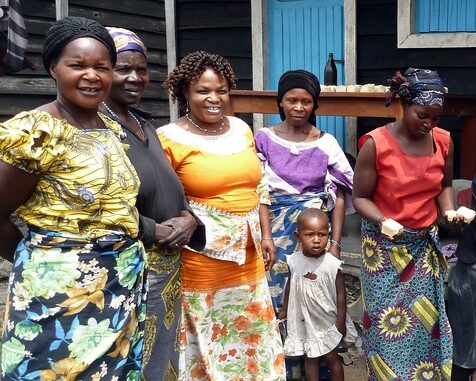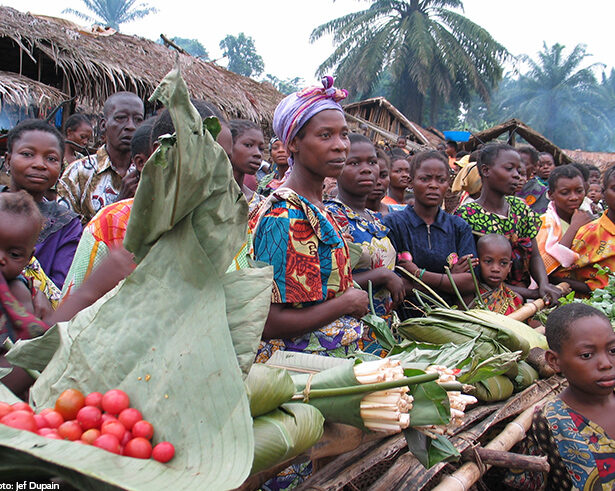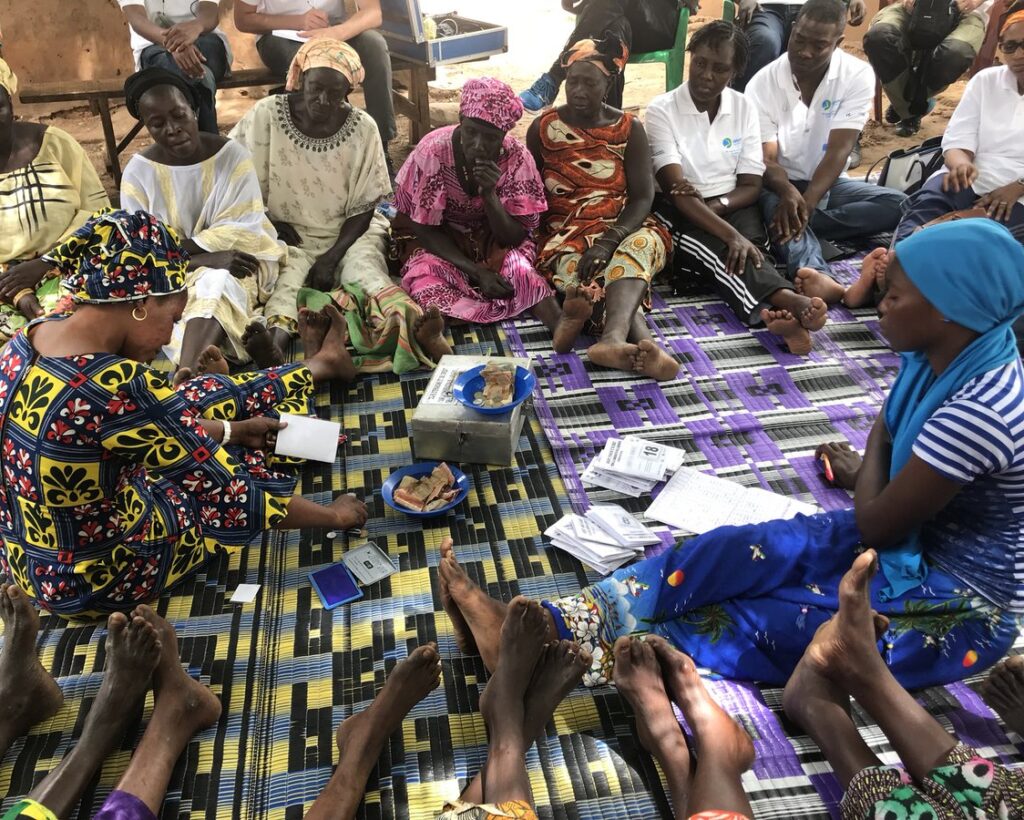About Helping Heroes
Who We Are
Helping Heroes International helps single mothers build businesses in developing countries. With an unwavering commitment, we believe that every woman, regardless of her circumstances, possesses the potential for greatness. For more than 15 years, our team of volunteers has worked to provide charitable donations, micro-loans, and innovative initiatives like our sewing school in the Congo, to empower single mothers, who in turn build strong communities and raise those around them.



Single Mothers in Developing Nations
There are several reasons why Helping Heroes supports single mother business owners in developing nations.
1. Single Mothers in Developing Nations
As high as 30-40% of mothers are single in developing nations. This can be attributed to a variety of factors, often intertwined with the socio-economic and cultural context of these countries. Understanding these factors is crucial for addressing the challenges faced by single mothers and for developing effective support systems. Key factors contributing to single motherhood in developing nations includes:
Economic Factors:
- Poverty: Economic hardship can lead to family instability and separation. In some cases, financial stress can exacerbate relationship problems, leading to separation or divorce.
- Labor Migration: Men often migrate to urban areas or other countries for work, leaving their families behind. This economic migration can result in women effectively becoming single mothers.
Cultural and Social Norms:
- Early Marriage and Pregnancy: In some cultures, early marriage and childbearing are common, but these marriages may not be sustainable, leading to early divorce or separation.
- Stigmatization of Divorce: In some societies, divorced or separated women may face social stigma, making it difficult for them to remarry.
Health Issues:
- Epidemics such as HIV/AIDSin parts of Sub-Saharan Africa, leaves to raise children alone after the illness or death of a spouse.
Conflict and Instability:
- War and Civil Unrest: Armed conflict and civil unrest can result in the loss of spouses or lead to family separation.
- Displacement: Displacement due to conflict or natural disasters can disrupt family units and lead to single-parent households.
Teenage Pregnancy:
- Lack of Sexual Education and Resources: In areas where there is limited access to sexual education and contraceptive resources, higher rates of teenage pregnancies can lead to single motherhood.
2. Women Face Unique Obstacles in Developing Nations
Single mothers in developing nations face a unique set of challenges that are often more acute and complex due to the intersection of gender, economic, and social factors prevalent in these regions. These challenges include:
Economic Hardship:
- Single mothers in developing countries often struggle with financial instability. Limited access to well-paying jobs, compounded by gender wage gaps, makes it difficult for them to provide for their families. Many single mothers are forced into low-paying, informal, or unstable employment.
Limited Access to Education and Training:
- Educational opportunities for single mothers are often scarce in developing nations. This lack of education limits their ability to secure better employment and improve their economic situation.
Social Stigma and Discrimination:
- Single mothers may face social stigma and discrimination. In many cultures, there is a strong social expectation for women to be married, and those who are single parents can be viewed negatively, which can lead to social isolation and mental health challenges.
Healthcare Access:
- Access to affordable and quality healthcare is a significant challenge. Single mothers often prioritize the health and well-being of their children over their own, leading to neglected personal health.
Childcare Responsibilities:
- With the sole responsibility for childcare, single mothers may find it difficult to balance work and family duties. The lack of affordable childcare services or support systems compounds this challenge.
Housing and Living Conditions:
- Securing safe and affordable housing is a major concern. Single mothers in developing countries often live in inadequate housing conditions, which can affect the health and safety of both the mother and her children.
Legal and Policy Barriers:
- In some countries, legal systems and policies do not adequately support the rights and needs of single mothers, making it difficult for them to access services, seek child support, or gain custody and legal protection.
Limited Social Support:
- The absence of a robust social support network, whether governmental or community-based, means that single mothers often have to rely on their limited resources. Extended family networks can provide some support, but this is not always available or sufficient.
Gender-Based Violence:
- Single mothers may be more vulnerable to various forms of gender-based violence, including domestic abuse, sexual exploitation, and societal violence, often exacerbated by their economic vulnerability.
Impact on Children:
- The challenges faced by single mothers directly impact their children, who may face issues such as limited access to education, poor health, and social stigma.
3. Investments in Women's Enter[rises in Developing Countries Yields Great Long-Term Benefits
Investing in women’s businesses in developing nations has shown numerous benefits, both statistically and qualitatively. These benefits extend beyond the individual businesses and often have a significant impact on communities and economies as a whole. Here are some key statistical benefits:
Economic Growth and Poverty Reduction:
- Women typically invest a higher proportion of their earnings in their families and communities than men. Studies have shown that increasing the income of women can lead to faster economic growth and poverty reduction.
- According to the World Bank, closing the gender gap in earnings and productivity could lead to significant economic gains, potentially boosting GDP in emerging economies.
Increased Family and Community Well-being:
- Women are more likely to spend their income on the health, education, and well-being of their families. UNICEF reports that when women control additional income, they spend more of it than men do on food, health, clothing, and education for their children.
- This reinvestment in families and communities can lead to improvements in child nutrition, health, and education outcomes.
Job Creation:
- Small and medium-sized enterprises (SMEs) with female ownership represent a significant portion of businesses in developing countries. Supporting these businesses can lead to job creation, which is crucial for economic development.
- The International Finance Corporation (IFC) found that SMEs with female owners tend to employ more women, thus helping to reduce gender disparities in employment.
Higher Repayment Rates for Loans:
- Women have been shown to have higher repayment rates for microloans than men. According to data from the Grameen Bank and other microfinance institutions, repayment rates among women can exceed 97%.
- This high repayment rate makes investing in women’s businesses a lower-risk proposition for microfinance institutions and banks.
Diversification of Economic Activities:
- Investing in women-led businesses contributes to diversifying the economic activities within a community or country.
- Women entrepreneurs often enter a variety of sectors, and their unique perspectives can lead to innovative business ideas and practices.
Social and Cultural Change:
- Empowering women through business can challenge traditional gender roles and stereotypes in developing countries.
- Successful female entrepreneurs can become role models, inspiring other women and girls to pursue education and entrepreneurship.
Resilience in the Face of Crisis:
- Women’s businesses have shown resilience in the face of economic and environmental crises. During such times, women’s contributions to household income become even more critical.
Improved Gender Equality:
- Economic empowerment of women through business ownership is a key driver of gender equality.
- It can lead to greater representation of women in decision-making roles both in business and in the community.
Female business operators hold the potential to be catalysts for profound change, not only in their own lives but also within their families, societies, and economies. What makes their impact particularly noteworthy is their unique approach to reinvesting in their families and communities.
Statistically, women reinvest approximately 90 cents for every additional dollar earned into their family’s well-being. This stands in stark contrast to their male counterparts, who tend to reinvest only 30-40%. This distinctive propensity to prioritize family education, health, and nutrition is a testament to the profound impact that female entrepreneurs can have on the quality of life within their households.
Strong women have a big impact on communities as evidenced by research Women Entrepreneurs in Developing Nations: Growth and Replication Strategies and Their Impact on Poverty Alleviation.
“Women entrepreneurs, when successful, act as a changemaker in their families and society and inspire others to become self reliant and take up entrepreneurship. Their success helps families, society, and local and regional economies by contributing to the growth of the nation. As cited by VanderBrug (2013), women in emerging markets plough back 90 cents of every additional dollar of income into “human resources”, which includes their families’ education, health, and nutrition (compared to 30–40% for men), thereby helping their families, communities, and nations.”
The Multiplier Effect
The multiplier effect of this group of women could be much greater than those of other demographic expansions, and in a way that has not yet been fully appreciated, for at least three reasons.
- First, the impact will be spread broadly; the women of the Third Billion are not limited to one country, but instead are dispersed in every part of the globe.
- Second, when women become more active economically, they tend to have fewer children. As the birthrate goes down, the social priorities of a culture change, and it becomes easier for more women to gain preparation and support for leading more independent lives.
- Third, these women are likely to invest a larger proportion of their household income than men would in the education of their children. As those children grow up, their economic impact increases further.
This helps explain why, as a report issued by the United Nations Development Fund for Women found, investments in women’s enterprises in developing countries yielded greater long-term benefits to the economy as a whole than investments in male-owned enterprises. (From The Third Billion)
A Boost to the Economy
Beyond the family unit, the economic activity generated by female business operators can significantly boost a nation’s GDP. Studies have shown that when women are actively engaged in entrepreneurship, a nation’s GDP can experience growth by figures as high as 16%. This economic stimulation arises from the creation of jobs, increased productivity, and the expansion of markets.
Moreover, women business owners often establish businesses that are innovative and socially conscious, addressing critical issues such as healthcare, education, and environmental sustainability. Their ventures contribute not only to economic growth but also to the betterment of society at large.
Unique Challenges for Single Mother Business Owners
Single mother business owners in developing nations face a unique set of challenges that are compounded by their dual roles as primary caregivers and entrepreneurs. These challenges are often intensified by socio-economic, cultural, and structural factors prevalent in developing countries. Key challenges include:
Access to Capital and Credit:
- Single mothers often face difficulties in accessing loans and credit due to lack of collateral, credit history, and discriminatory practices by lending institutions.
- Cultural biases against women, particularly single mothers, can further restrict their access to financial resources necessary for starting or expanding a business.
Balancing Business and Family Responsibilities:
- Single mothers bear the primary responsibility for childcare and household management, which can limit the time and energy they have available for their businesses.
- The lack of affordable childcare services in many developing countries exacerbates this challenge.
Limited Access to Markets and Networks:
- Women, especially single mothers, may have limited access to markets to sell their products or services due to mobility constraints and social norms.
- Networking opportunities, which are crucial for business growth, are often less accessible to women, and even more so for single mothers.
Social Stigma and Discrimination:
- Single mothers may face social stigma and discrimination both in society and in the business environment. This can affect their mental health, self-esteem, and overall business prospects.
- In some cultures, single mothers are viewed negatively, which can impact their ability to attract customers, partners, and investors.
Lack of Education and Training:
- Educational opportunities for women in developing countries can be limited, and single mothers may have had to forego education to care for their children.
- This lack of education can limit their business skills and knowledge, affecting their ability to successfully manage and grow their business.
Legal and Policy Barriers:
- In some developing countries, legal and regulatory frameworks are not supportive of women entrepreneurs, with few policies in place to address the specific needs of single mothers.
- Bureaucratic hurdles and corruption can disproportionately affect women, who may have less experience or resources to navigate these challenges.
Healthcare Challenges:
- Access to affordable healthcare is a significant concern for single mothers, impacting their physical and mental well-being.
- Health issues, either of the mother or the child, can directly affect the stability and productivity of their business.
Cultural Expectations and Gender Roles:
- Traditional gender roles may restrict women’s ability to engage in certain types of businesses or to operate in the public sphere.
- Cultural expectations can also place additional burdens on single mothers, who are often expected to conform to societal norms while managing their businesses.
Safety and Security Concerns:
- In some regions, safety and security concerns can be a significant issue, especially for women operating businesses in public or in male-dominated sectors.
- Single mothers may be more vulnerable to exploitation, harassment, and violence, which can impact their ability to run a business effectively.
“A disproportionate share of women-owned businesses in developing countries today are micro, small or medium enterprises. Often they do not mature. This has a negative on growth and poverty reduction. Understanding the specific barriers women’s businesses face and providing solutions to address them are necessary for countries to further leverage the economic power of women for growth and the attainment of development goals.”
- Traditional gender roles are still affecting some women’s abilities to be entrepreneurial. Women lack confidence. Too many women world-wide are solopreneurs, with no employees. Not enough women are starting scalable businesses. Women need to pursue global markets. Women need a network of entrepreneurial role models and mentors
- The leading cause of business failure for women across developing and industrial nations is lack of access to capital, lack of access to support networks, issues relating to gender or cultural acceptance (Singer et al., 2014), lack of basic education, lack of technical skills and knowledge about business, lack of market knowledge (making them vulnerable to exploitation by market forces)
In spite of these challenges many single mothers have no choice but to work in order to provide for their children and families. And when they do, it leads to gender equality and also has a multiplier effect, benefiting families, communities, and the overall economy. These benefits are crucial for the benefit of families as well as sustainable development, economic strength and community health in developing nations.
About Us
Purpose & Vision
Single parent homes are common in many developing nations. While faced with insurmountable societal and economic obstacles and challenges, many mothers must raise children without the support of their father. These women, who have no choice but to succeed in the face of insurmountable odds, are the Heroes that we help. Wherever there are strong women, there are strong communities and we exist to give them every opportunity to provide for the families and build communities.
Our philosophy has always been to develop sustainable skills and abilities rather than simply providing money. This allows our Heroes to become stronger and support themselves without the need for ongoing support.
Purpose & History
We help empower single mother entrepreneurs in developing countries, supporting families, fostering economic independence and building communities.
For over a decade, we have dedicated ourselves to providing opportunities, training, and resources to those who need them most. We believe that every woman possesses the potential for greatness, and by offering unwavering support and structured programs, we aim to unlock this potential, creating a ripple effect of positive change that reaches far beyond individual lives.
100% of the funds we raise has gone directly to helping our Heroes acquire skills and build businesses
Our Vision
Our long term vision is to have the following impacts:
- Help thousands of single mother Heroes overcome hardship and obstacles to build businesses, support their families and contribute to their communities
- Support single mother Heroes on all continents
- Teach trade and business skills
- Provide benefit to 10X the people we help directly via multiplier effects
- Engage international volunteers and sponsors
- Graduates of our programs become volunteers to help lift other Heroes
